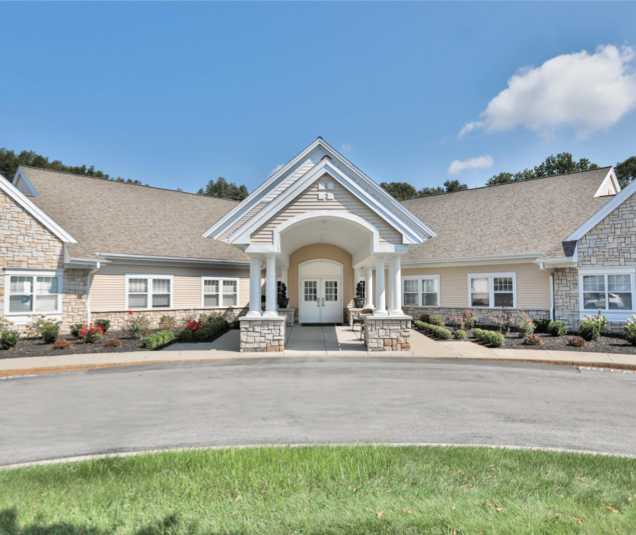Receiving a diagnosis of early-stage dementia can bring a wave of uncertainty for both individuals and their families. While it’s natural to feel overwhelmed, this early phase also provides a critical window of opportunity—a time when thoughtful planning can help support a more secure, empowered future.
The best time to start planning for memory care is during the early stage of dementia—shortly after diagnosis—while your loved one is still able to participate in important decisions. Beginning the conversation early ensures that care preferences are honored, safety concerns are addressed proactively, and transitions can happen with greater comfort and clarity.
What Is Early-Stage Dementia?
Dementia is a general term for a decline in memory and cognitive function that interferes with daily life. Early-stage dementia refers to the initial phase, when symptoms are often mild and may include forgetfulness, difficulty with planning or organization, changes in mood, or repeating questions. In this stage, individuals are often still independent and capable of participating in many daily activities.
The most common cause of dementia is Alzheimer’s disease, but other types, such as vascular dementia, Lewy body dementia, and frontotemporal dementia, may present with slightly different symptoms. Regardless of the specific diagnosis, early-stage dementia marks a time when families can prepare for future changes, before memory loss or confusion makes decision-making more difficult.
Why Early Planning Matters
Preserving Autonomy & Dignity
One of the most important reasons to begin memory care planning early is to give the person living with dementia a voice in their future. During the early stage, many individuals are still able to articulate their values, preferences, and concerns. They may want to express opinions on where they live, the kind of care they receive, or how they spend their time.
Making these decisions together helps ensure that the person’s identity and dignity remain at the center of their care journey.
Reducing Future Stress
Waiting too long to explore memory care options can lead to rushed decisions during moments of crisis, such as a hospitalization, safety concern, or sudden cognitive decline. Early planning allows families to calmly compare communities, tour residences, meet staff, and understand care offerings without pressure.
This reduces emotional strain in the long run and increases confidence that the right support will be available when it’s needed most.
Financial & Legal Preparation
Memory care is a specialized service, and it’s important to consider the financial aspects involved. Early-stage planning gives families time to review budgets, consult professionals, and explore long-term care insurance or Medicaid eligibility, if applicable.
This phase is also ideal for completing essential legal documents, such as:
- Power of attorney (healthcare and financial)
- Living will or advance directive
- HIPAA authorizations
- Guardianship or conservatorship (if appropriate)
Putting these documents in place early helps avoid confusion or conflict in the future.

Recognizing the Signs
So, when exactly should you begin exploring memory care? While every person is different, some key indicators include:
- A formal diagnosis of Alzheimer’s or another form of dementia
- Noticeable changes in short-term memory, problem-solving, or attention span
- Growing difficulty managing medications, appointments, or finances
- Increasing reliance on loved ones for reminders or daily tasks
- Concerns about safety, such as getting lost, leaving appliances on, or wandering
- Changes in mood or behavior, such as confusion, anxiety, or social withdrawal
These signs don’t necessarily mean a person needs full-time memory care right away, but they do suggest that the time is right to start exploring your options.
Tips for Beginning the Conversation
Starting a conversation about memory care can be emotional, but approaching it with empathy and clarity helps. Here are a few tips:
- Pick the right moment: Choose a time when you’re both calm and relaxed.
- Be honest but gentle: Acknowledge the changes you’ve noticed and express your desire to plan ahead together.
- Focus on support: Emphasize that the goal is to maintain their independence and well-being, not to take it away.
- Invite input: Ask how they feel and what matters most to them in the future.
These conversations may take time and may need to happen gradually, but beginning them early creates room for openness and understanding.
What Does Memory Care Provide?
Memory care communities are specially designed to meet the specific needs of individuals living with Alzheimer’s and other forms of dementia. These communities go beyond traditional assisted living by offering:
- A secure, home-like environment that feels welcoming and prevents wandering
- Specialized staff training in dementia care and communication
- Structured routines that support comfort and reduce anxiety
- Engaging, purposeful activities that stimulate the mind and body
- Personalized care plans that adapt as needs change
- Transparent pricing and flexible care models
The goal is to provide a safe, supportive setting that helps individuals retain as much independence as possible while receiving the guidance and supervision they need to thrive.
Involving the Person Living with Dementia
One of the most compassionate things you can do during early-stage planning is include your loved one in the process. Ask what matters to them. Do they value quiet spaces? Do they enjoy being around others? What kind of daily activities make them feel engaged or peaceful?
Visit communities together if possible. Let them meet caregivers, ask questions, and get a feel for the environment. Even if they can’t fully retain or process all the information, the experience helps build familiarity and trust.
This shared journey also reassures your loved one that they’re not alone—that you’re walking this path with them, every step of the way.
A Peaceful Path Forward
A diagnosis of dementia changes life, but it doesn’t mean the journey ahead must be filled with fear or uncertainty. With early planning, families can take proactive steps to support their loved one’s evolving needs while preserving their voice, dignity, and sense of self.
At Peregrine Senior Living at Clifton Park, we believe memory care should feel personal, purposeful, and hopeful. Located in Clifton Park, NY, our memory care program is designed to provide support through every stage of dementia, starting with those early conversations that matter most.
Schedule a visit today to learn how we help families prepare, plan, and thrive with compassion and confidence.











Live music with Doug this afternoon🎶🎤 ... See MoreSee Less
0 CommentsComment on Facebook
We love to stay active with one of favorite games! Balloon Volleyball! 🎈 ... See MoreSee Less
1 CommentsComment on Facebook
Getting an early start on our Valentines Day Crafts🩷❤️ ... See MoreSee Less
1 CommentsComment on Facebook
Today, we honor the life and legacy of Dr. Martin Luther King Jr.—a leader whose message of equality, compassion, and courage continues to inspire us all.
His dream reminds us that even small acts of kindness can ripple outward and create lasting change.
May we carry his vision forward by leading with empathy, listening with understanding, and building communities grounded in love and unity.
peregrinecliftonpark.com/ ... See MoreSee Less
0 CommentsComment on Facebook
Happy Friday! Today we got out to the 9am mass service at Saint Edward’s the confessor church and finished the morning off with breakfast to our local IHOP 🥞 ... See MoreSee Less
1 CommentsComment on Facebook
Winter crafting projects ❄️☃️ ... See MoreSee Less
1 CommentsComment on Facebook
On site cookie class with 518 Sweets🍪😊 ... See MoreSee Less
2 CommentsComment on Facebook